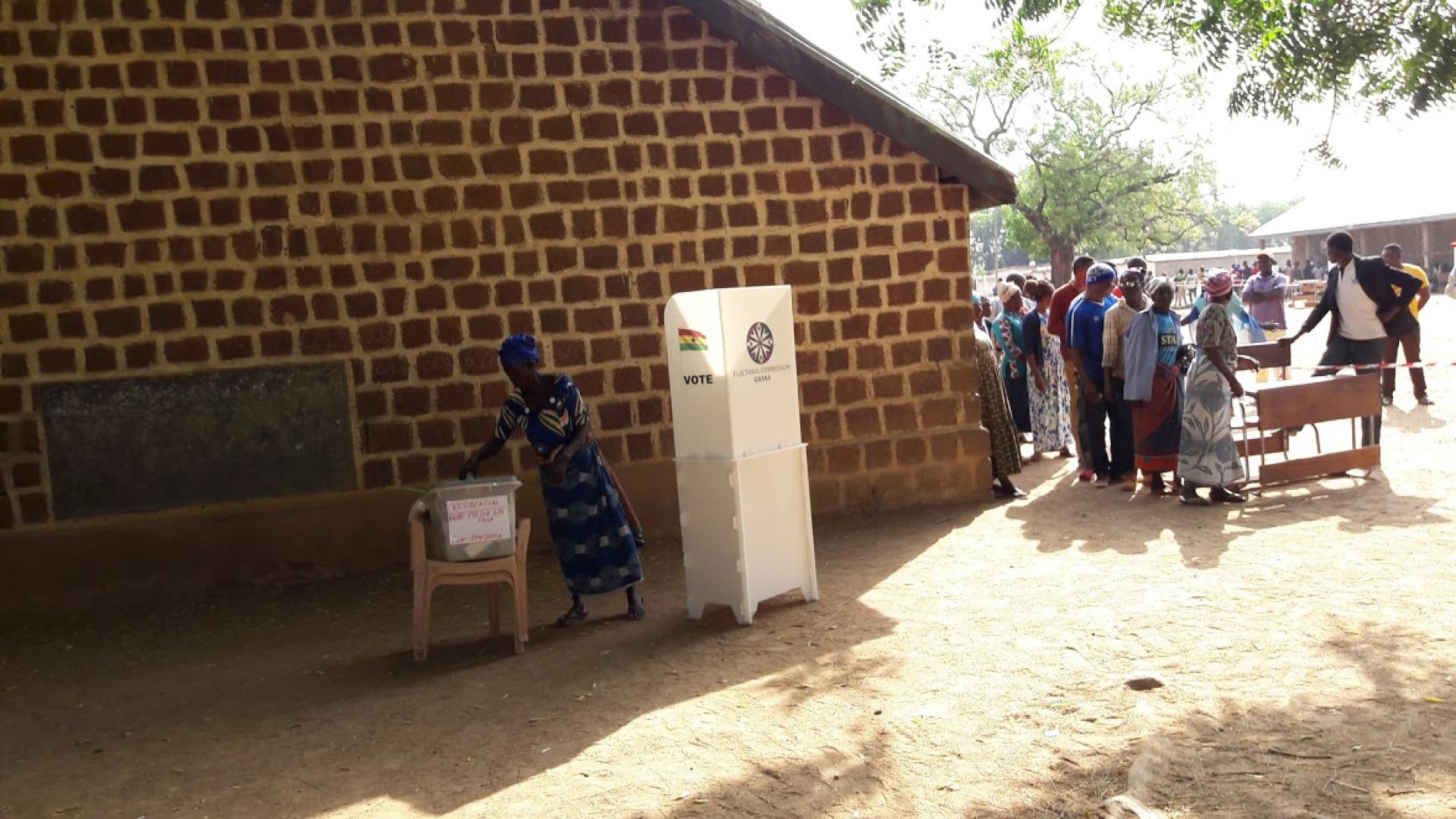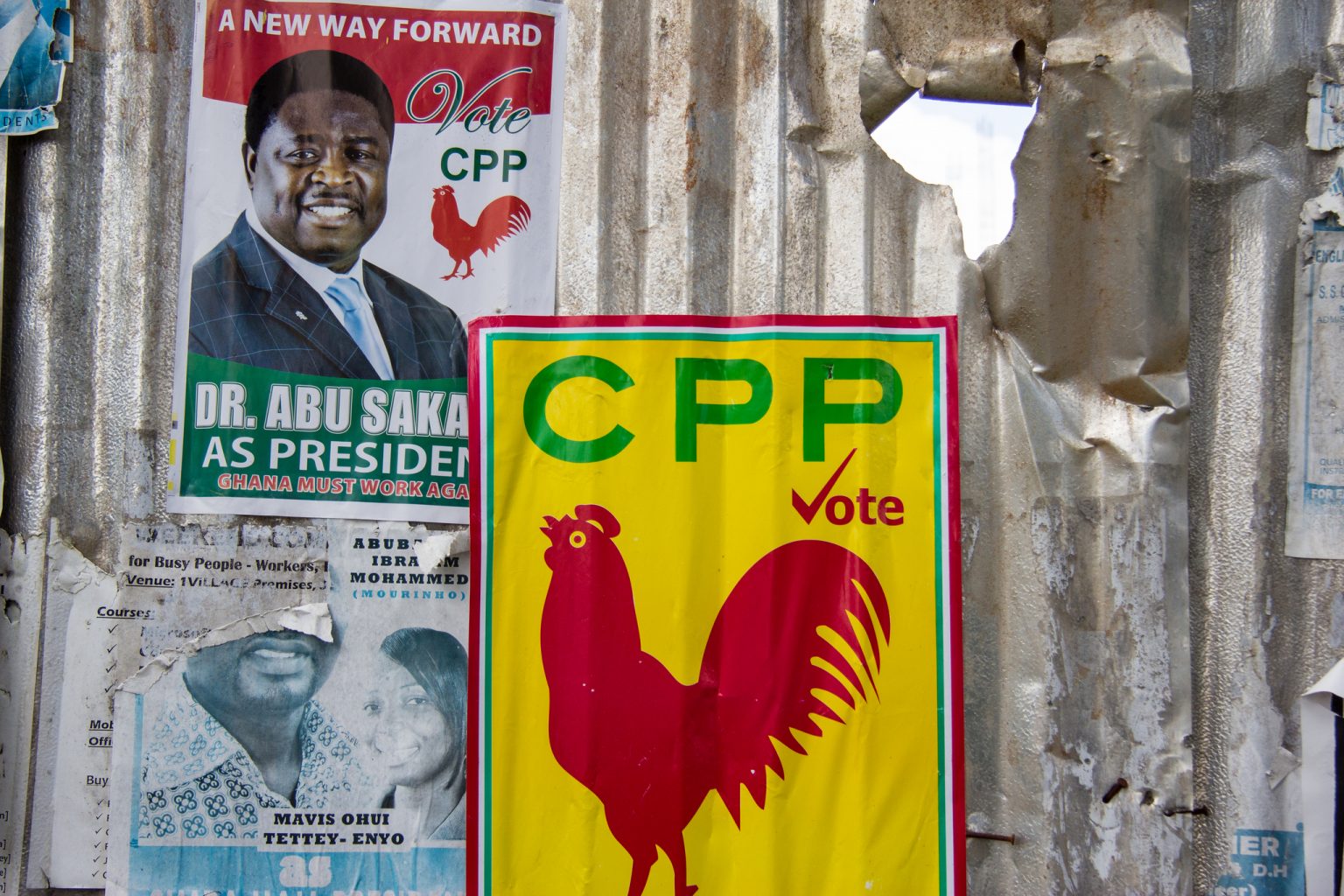WFD research to inform cost of politics talks in Ghana

At what point does the cost to stand for election become so high it affects equality, trust and good governance?
New data shows the cost of running for political office in Ghana went up by nearly 60% over one single electoral cycle (2012-2016).
Opening the second phase of WFD’s flagship research into the cost of politics, an in-depth analysis of the costs incurred by candidates in Ghana, published in February, will inform WFD technical talks with government, political parties and civil society about practical steps to ensure wider and fair access to politics.
Ghana has held six elections since returning to multiparty democracy in 1992 with three peaceful power transitions, including, in 2016, the first defeat of a sitting incumbent. However, multiparty competitive elections can be costly affairs for aspiring and incumbent legislators. WFD research found between 2012 and 2016 the cost of running for political office in Ghana increased 59%. On average candidates needed to raise approximately GHS 390,000 (approx. USD 86,000) to secure the party primary nomination and compete in the parliamentary election in their constituency. If the cost of politics rises to unaffordable levels the danger is that politics becomes the domain of the elite and wealthy, and that the motivation and incentives of MPs move from serving the public to recovering their own investment.
The cost of elections in Ghana
WFD’s new study, in collaboration with the Ghana Centre for Democratic Development (CDD), breaks down the various costs involved in seeking public office in Ghana. Over 250 candidates and sitting MPs were surveyed about their experiences in the 2012 and 2016 elections. These findings were complemented by individual interviews and focus groups. Four key areas of election expenditure – campaigns, payment of party workers, media and advertisement and donations – were analysed in detail at both the party primary level and during parliamentary election campaigns. They paint a picture of an environment where male candidates outspend female ones; where the greatest costs incurred are by candidates standing in municipal areas; where party primaries, particularly those of Ghana’s two main political parties (the NDC and NPP) can be very expensive affairs; and where an ability to spend the most money is, by and large, a critical factor in successful winning a seat in elected office.
In Ghana, a sitting MP earns GHS 233,000 annually (approx. USD 51,000). Therefore a successful election campaign on average costs them the equivalent of the best part of two years’ wages. This illustrates how much of a barrier to entry the cost of politics can have on ordinary Ghanaians who are keen to seek political office but lack substantial sponsorship.
It is important to note that the figures quoted for the items above also do not account for all the ‘soft’ money raised and spent by the candidates in the parliamentary primaries because according to respondents, tracking how much a candidate spent in any contest is an extremely difficult exercise: ‘it is a fact that there are so many items we spent money on, which cannot be accounted for in our election budgets’, a candidate who wished to remain anonymous said. The actual cost is therefore likely to be higher than the numbers provided.

Implications of the increasing ‘costs of politics’ on democracy
From those surveyed, three broad themes emerged on the political and societal implications of rising costs of running for and maintaining public office:
- Exclusion: women and youth suffer disproportionately when the cost of politics rises.
- Disillusionment: increasing costs lead to the perception that competence takes a backseat to wealth in gaining seats in parliament.
- Corruption: mounting MP debts makes them susceptible to a variety of forms of corruption.
What kinds of options are available to counter the trend or mitigate its impact? The research presented respondents with several ‘good practice’ solutions that have been implemented elsewhere to limit the growth of political finance.
Adopting ‘good practice’: what will work for Ghana?
First, those surveyed expressed strong support for remedies that affected other institutions or groups. For instance, 80% supported laws that requires balanced media coverage during elections. 88% supported civic education programmes that encouraged voters to stop making financial demands on candidates or MPs.
The sample also supported interventions that would likely benefit them personally, whether financially or indirectly. 85% supported a reduction in filing fees imposed on candidates by electoral commissions or political parties. This has been a particularly large growth area for political costs, as parties have come to realise the potential rents to be gained from extracted significant fees from their candidates.
There was far less support, however, for regulations that restricted their own ability to operate within campaigns. Just 50% favoured a cap on spending for electoral campaigns, while only 56% supported a similar cap on how much candidates could spend on media advertising. These kinds of caps have a somewhat chequered history in Sub-Saharan Africa, so the resistance may not be entirely self-serving, but the distinction is intriguing.
Lastly, over 72% of the respondents expressed support for sanctions against those who engage in political patronage. Given that 83% of these same respondents declared their approval of political patronage in a previous question, this juxtaposition strengthens the hypothesis that most political actors would like to see the system change (and the costs reduce) but few to none feel they can make that change on their own.
Instead, they accept the rules of the game as they are while expressing support for certain changes that might eventually shift the rules in a positive direction. Further research will explore this collective action problem and the effect this cognitive dissonance has on efforts to catalyse political finance reform.
The complete study, funded by DFID Ghana through the Strengthening Action Against Corruption (STAAC) programme, will be available on wfd.org in February 2018, when WFD will begin engaging institutions and civil society in Ghana to present the results of the research and discuss practical action.